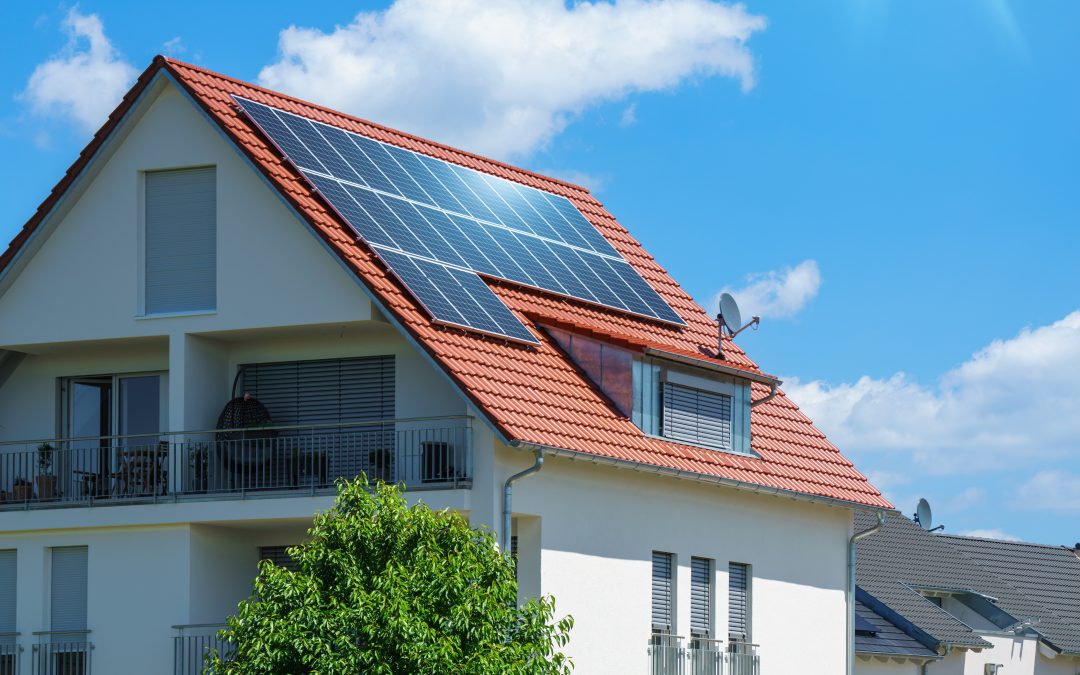As interest in renewable energy grows, many homeowners in the Virginia, Maryland, Baltimore, and Washington, D.C. (DMV) region are exploring solar, wind, and geothermal options to power their homes sustainably. The DMV area offers a range of incentives that make renewable energy not only a smart environmental choice but also an excellent financial decision. If you’re ready to go green and tap into the benefits of renewable energy, in this step-by-step guide, we will explore the process of solar power installation for DMV homeowners, helping you get started with confidence.
1. Assess Your Home’s Energy Needs and Suitability
Before diving into a renewable energy installation, it’s essential to evaluate your home’s energy needs and suitability for specific systems. Here’s what to consider:
- Current Energy Consumption: Review your past utility bills to understand how much energy you consume. This will help you determine the size of the system you’ll need.
- Property Assessment: For solar, check your roof’s orientation, shading, and structural integrity. If your roof doesn’t get sufficient sunlight, consider community solar programs available in urban areas like Baltimore and Washington, D.C.
- Budget Planning: Renewable energy systems can be a significant investment, though incentives help reduce the cost. Explore available federal and state incentives, such as the federal Investment Tax Credit (ITC), which can cover 30% of solar installation costs, and any local rebates in Virginia, Maryland, or D.C.
2. Research and Choose a Reliable Installer
Once you’ve decided on your energy goals, the next step is to find a reputable installer. Selecting the right professional is critical to ensuring a smooth installation and long-term success. Here’s how to approach this:
- Request Multiple Quotes: Compare quotes from different installers to ensure you’re getting a fair price and comprehensive service.
- Verify Licensing and Certifications: Check for North American Board of Certified Energy Practitioners (NABCEP) certification, which indicates a higher standard of expertise.
- Customer Reviews and Case Studies: Look for reviews or case studies that highlight the installer’s experience with similar properties in the DMV region. Some installers specialize in urban settings, which can be useful if you live in D.C. or Baltimore.
- Ask About Warranties: Confirm that the installer provides warranties for both equipment and installation work. Many solar panels come with 20-25 year warranties, while inverters may be covered for 10-15 years.
3. Obtain Necessary Permits and HOA Approvals
Permits are usually required for renewable energy installations, and the process varies by jurisdiction:
- Permitting Process: Your installer will typically handle the permitting process, which involves applying with your local zoning or building authority. Homeowners in the D.C. area, for example, need to navigate specific urban guidelines.
- HOA Requirements: If your property is part of a Homeowners Association (HOA), you may need to secure approval before installation. Most HOAs in Virginia, Maryland, and D.C. are familiar with renewable energy requests, but it’s wise to check the community’s policies.
4. Installation: What to Expect
The installation process for renewable energy varies depending on the system chosen. Here’s a brief outline of what to expect:
- Solar Panels: The installer will secure mounting equipment on your roof, install the panels, and connect them to an inverter, which converts solar energy to usable electricity. For ground-mounted systems, installers place the panels on open land near your home.
- Wind Turbines and Geothermal Systems: These systems require more space and are typically more complex than solar installations. Wind turbines may require structural supports, while geothermal systems involve drilling to install heat pumps underground.
The installation typically takes 1-3 days for residential solar systems, with some preparation time for more extensive systems like wind or geothermal. After installation, the system is usually inspected by a local authority and then connected to the grid, allowing you to start generating energy.
5. Maintenance and Upkeep
Renewable energy systems are designed for low maintenance, but occasional checks are essential to ensure optimal performance. Here’s what to keep in mind:
- Regular Inspections: Schedule annual inspections with your installer to check for any signs of wear or inefficiency. Solar panels should be checked for debris or dirt that may accumulate and reduce efficiency.
- Inverter and Battery Checks: Inverters typically last around 10-15 years, so be prepared for a replacement if you’ve opted for a grid-tied or hybrid system. If you’re using battery storage, follow manufacturer guidelines to maintain charge capacity.
- Monitoring Performance: Many systems come with monitoring software, allowing you to track energy production and identify any potential issues before they become costly repairs.
6. Understanding Financial Returns and Environmental Impact
Renewable energy systems not only reduce utility costs but also contribute positively to the environment. As a DMV homeowner, you’ll likely see a financial payback on solar installations within 6-10 years, especially with available incentives. Community solar or shared wind farms are additional options in urban areas that lack roof space, making it easier for city residents to benefit from renewable energy.
In addition to cost savings, adopting renewable energy reduces your household’s carbon footprint, making a meaningful contribution to reducing greenhouse gases in the DMV region. Plus, properties with renewable energy installations often have higher resale values, a bonus if you plan to sell in the future.
Embarking on the journey to install renewable energy in your home can feel overwhelming, but with careful planning and the right support, it becomes a straightforward and rewarding process. By assessing your energy needs, selecting a reliable installer, navigating permits, and maintaining your system, you’re setting yourself up for long-term savings and sustainable living. With an investment in renewable energy, DMV homeowners not only enjoy financial and environmental benefits but also join a growing movement toward a greener future.


Recent Comments